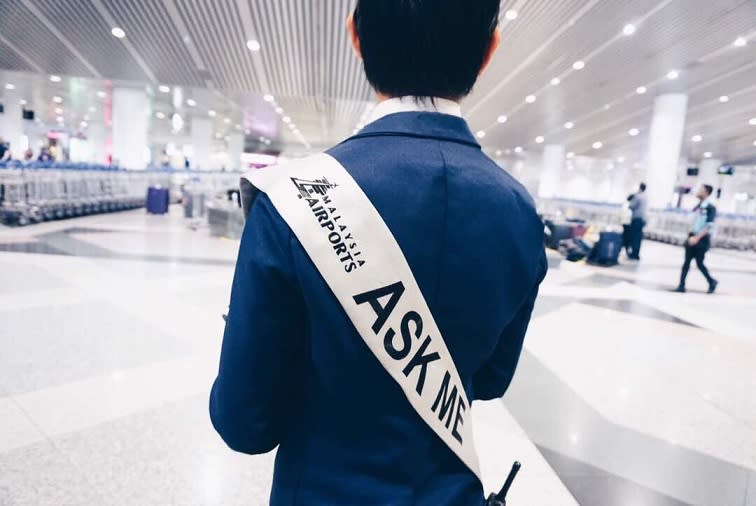In pushing to privatise MAHB, decision makers seem to be ignoring airport operator’s on-going work

The Malaysian government has been kept busy pacifying those concerned about the privatisation plan involving Malaysia Airports Holdings Bhd (MAHB) and Global Infrastructure Partners (GIP).
In so doing, the decision makers seemed to have ‘ignored’ the work being done by Malaysia’s airport operator.
Sources told Twentytwo13 that MAHB had already embarked on plans to improve the movement of luggage, passengers, and cargo at airports it operates, including the Track Transit System, and the Baggage Handling System.
The sources added that talks of the privatisation deal had ‘unnerved’ the 8,000-odd MAHB staff, who are in the dark about their future, and feared possible layoffs. One said that the current narrative seemed to “throw MAHB under the bus”.
An insider pointed out that the Automated People Mover (Aerotrain) will be completed two months ahead of schedule, and will be operational by Jan 31 next year, while the baggage handling system is expected to be completed by the third quarter of 2026.
“We hope no one will then claim credit for work that had already been carried out by MAHB,” the insider said.
Those justifying the privatisation plan said the new consortium will “complete critical capital projects, including the Aerotrain and baggage handling system at KLIA” and will “expand retail and F&B offerings”, among others.
“Any plans to push for MAHB to soar is welcomed, but let’s not forget the work that it has done over the years,
“It now seems like MAHB has not been doing what it’s supposed to be doing, and that is being used as the justification to go private. That’s unfair. Also, the 8,000-odd MAHB staff are jittery, as they don’t know what’s next.
“If by going private, the new operator can bring in 50 new flights from the United States for example, by all means. We too, would like to know how they do it. If they can build a new terminal, by all means, as we too, would like to know how they can pull it off with the current resources,” another insider added.
In a presentation to then prime minister Tun Dr Mahathir Mohamad in 2019, MAHB highlighted challenges in its operating agreement (OA) with the government, adding that “changes in external context require a fundamental restructuring of the regulatory framework”.
It added that the 2009 OA relied on the government for investment, highlighted imminent capacity constraints faced by the airports, and acknowledged that other regional airports outpaced Malaysia in airport infrastructure investments.
The presentation deck also highlighted that Singapore had added a new airport development levy of RM33 per pax in 2018, with passenger service charges (PSC) increasing by RM7.50 per year from 2018. The increased PSC, it said, “had not negatively impacted air traffic volumes”.
Prime Minister Datuk Seri Anwar Ibrahim, in Parliament on July 2, said the New York-based GIP was selected to participate in the exercise to privatise MAHB due to its compliance with the stringent criteria set by Khazanah Nasional Bhd. Khazanah, Malaysia’s sovereign wealth fund, has a 33 per cent stake in MAHB, and is currently, its largest stakeholder.
Anwar also revealed that discussions about privatising MAHB “began a year ago, due to lower profits and capacity projections, compared to neighbouring countries, despite the group being in the black”.
On July 3, Finance Minister II Datuk Seri Amir Hamzah Azizan, in a special chambers session in Parliament, said Malaysia’s airports were falling behind their regional counterparts, and that the nation’s aviation sector only contributed 3.5 per cent to the country’s gross domestic product (GDP).
MAHB, at its 25th annual general meeting (AGM) on June 6, reported a net profit of RM543.2 million for the financial year ending Dec 31, 2023, compared to RM187.2 million in 2022. It also highlighted that it recorded a net profit of RM190 million in the first quarter of this year.
Investors were also given a sneak peek into the seven focus areas to accelerate growth. They included reimagining the passenger experience, enhancing airline and hub connectivity, and expanding the terminal at the Penang International Airport.
Besides the on-going work on the Aerotrain and baggage handling system, MAHB also listed its expanded retail and F&B offerings and revealed that it had installed 42 EZPaz kiosks, and introduced six EZBagz facilities at KLIA, with 60 more to be set up. It also shared its off-terminal opportunities.
The post In pushing to privatise MAHB, decision makers seem to be ignoring airport operator’s on-going work appeared first on Twentytwo13.


